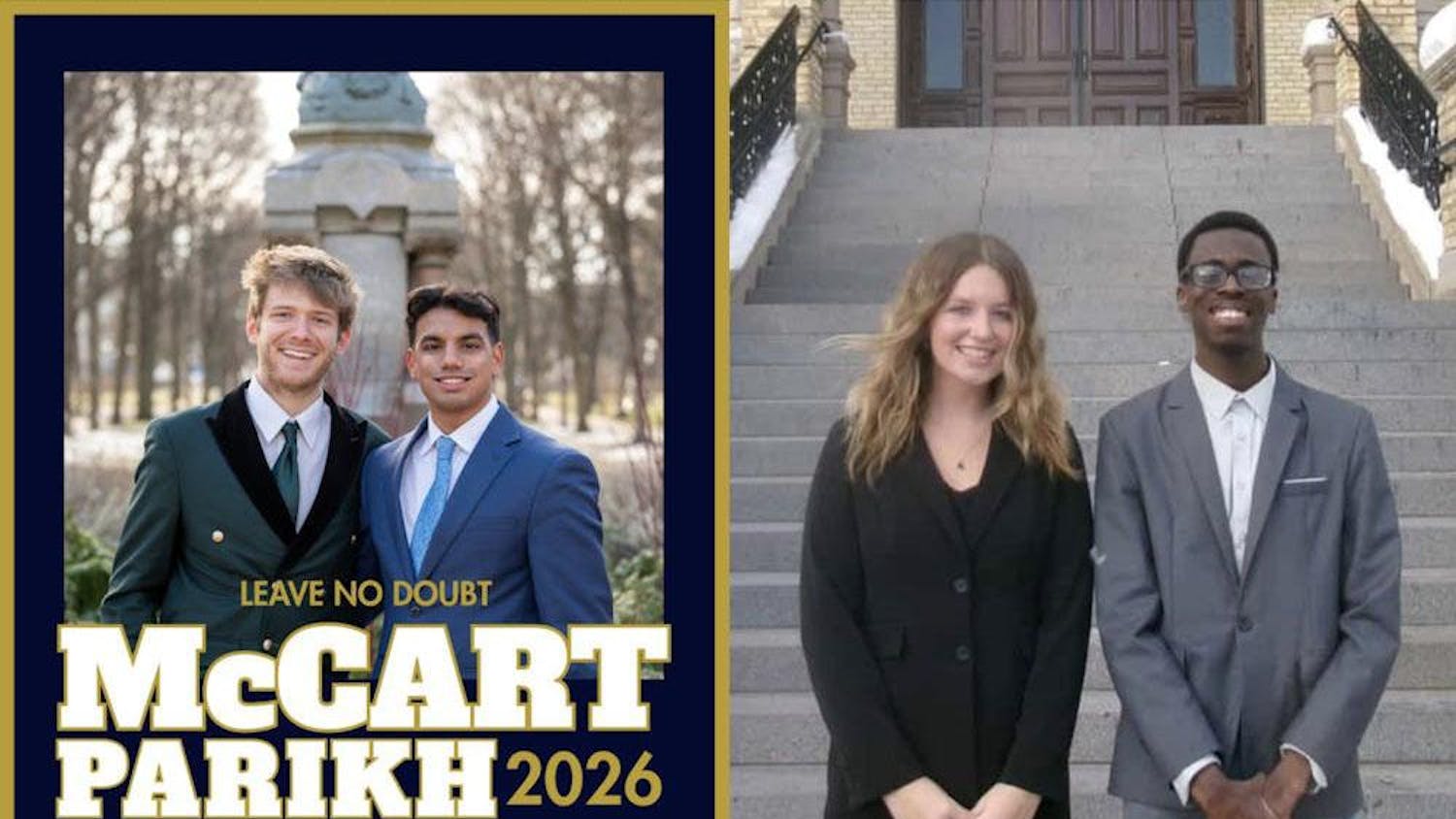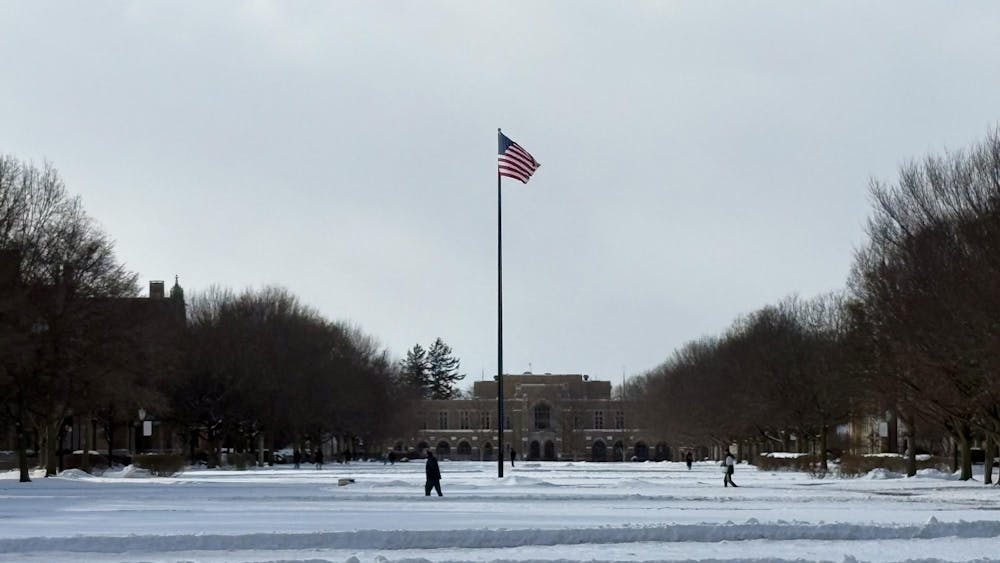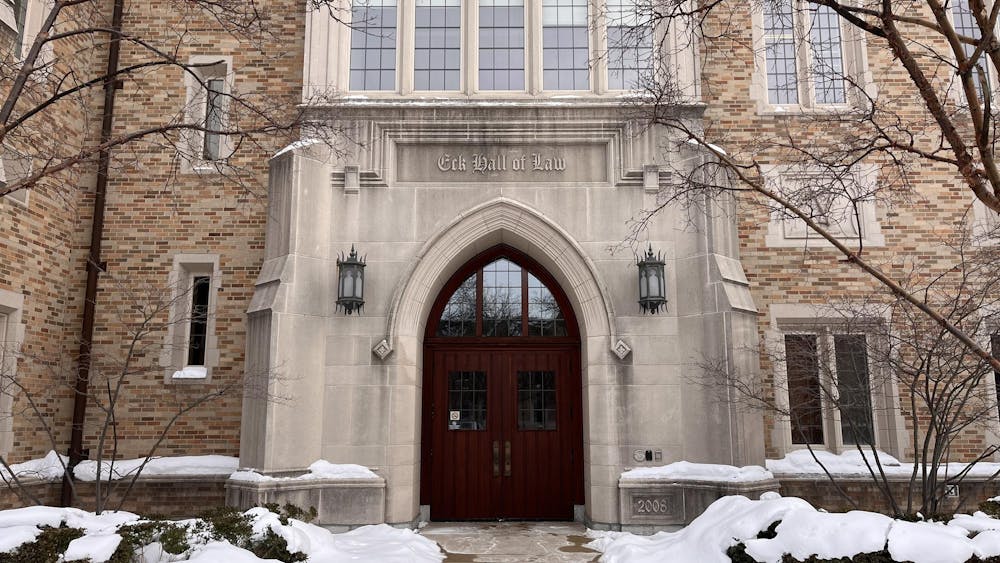Obie Anthony, founder of the organization Exonerated Nation, spoke at the Notre Dame Law School Thursday. He was joined by David McLane, one of the attorneys who worked on his civil rights lawsuit.
In 1995, at the age of 19, Anthony was wrongfully convicted of murder and attempted robbery and was sentenced to life without parole. Despite his insistence that he was innocent, he spent 17 years in prison (plus about a year and a half in Los Angeles County Jail) before being exonerated in 2011. 
The Northern California Innocence Project and Loyola Project for the Innocent took up Anthony’s case in 2008. His conviction was overturned on the grounds of ineffective assistance of counsel, prosecutorial misconduct and use of informants.
The original verdict was based on an identification from John Jones, who managed a brothel near the crime scene. It was later revealed that he got an advantageous deal on his own criminal charges in exchange for testifying against Anthony and didn’t actually have eyewitness knowledge of the perpetrator.
McLane and Anthony both discussed the factors contributing to his conviction, including the effects of the 1994 crime bill and his situation as a young man of color in south-central Los Angeles, where gang violence was a pressing concern.
They also referenced the high pressure on police officers to close a case, typically with an arrest. This pressure was magnified by the fact that the detective on Anthony’s case was the first Black female detective in L.A.’s homicide division and this was her first case.
In discussing the challenges to getting a conviction overturned, McLane said there is a presumption that the justice system worked.
“The burden of proof is now on the inmate,” McLane said.
Individuals like Anthony need to not only prove their innocence, but also the existence of misconduct in their original investigation.
McLane also referenced the existence of a “trial tax,” in which the district attorney offers the public defender a shorter sentence than their client would likely receive in trial because they think chances of conviction are high.
As a result, many people (though innocent) plead guilty because they’re scared the jury will convict them anyway. Those who don’t and are convicted, face the risk of repercussions in their sentencing for “show[ing] no remorse.”
Anthony spoke about the many challenges he faced upon his release, describing the “first 40 days” during which excitement over his freedom gave way to the realization that he was almost entirely on his own in restarting his life. He had neither money nor support to find education, employment or housing.
Having spent his whole adult life in prison, Anthony had no credit history and a credit score of 450 despite being 37 years old. It took him six to eight months to get a new ID, during which time he said he had to carry the newspaper article with his exoneration since he had no identification. It took an additional year to find a job and five years to get compensation. Anthony's civil rights lawsuit against the City of Los Angeles was settled for $8.3 million in 2015.
To try and address this need, Anthony founded Exonerated Nation in 2016 to show exonerees that “there is a community there that can embrace them.”
Exonerated Nation provides support and opportunities for others like him, including twice-yearly retreats for exonerees to develop skills, leadership and mental health.
“Wherever there’s a necessary need for help, if you have the capacity and capability to do it, you do it,” Anthony said.
In addition to helping individuals, Exonerated Nation has worked to pass laws that support the wrongfully convicted. One example is Obie’s Law in California which ensures transitional services to help with housing, employment, mental health and identification, just like what parolees receive.
“My life mission is to do this — go out to talk about and educate individuals about how it can happen to you … to do my best and to continue that march forward and continue to educate others from all around the United States,” Anthony said.
Founder of Exonerated Nation speaks at Notre Dame Law
David McLane, Obie Anthony's attorney, discussed the difficulty in overturning wrongful convictions and the need for post-conviction relief.









